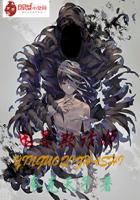For these historical reasons, it may be assumed that the LOCALreligious antiquities of Greece, especially in upland districts like Arcadia and Elis, are as old, and as purely national, as free from foreign influences as any Greek institutions can be. In these rites and myths of true folk-lore and Volksleben, developed before Hellas won its way to the pure Hellenic stage, before Egypt and Phoenicia were familiar, should be found that common rude element which Greeks share with the other races of the world, and which was, to some extent, purged away by the genius of Homer and Pindar, pii vates et Phaebo digna locuti.
In proof of this local conservatism, some passages collected by K.
F. Hermann in his Lehrbuch der Griechischen Antiquitaten may be cited. Thus Isocrates writes, "This was all their care, neither to destroy any of the ancestral rites, nor to add aught beyond what was ordained". Clemens Alexandrinus reports that certain Thessalians worshipped storks, "IN ACCORDANCE WITH USE ANDWONT". Plato lays down the very "law of least change" which has been described. "Whether the legislator is establishing a new state or restoring an old and decayed one, in respect of gods and temples, . . . if he be a man of sense, he will MAKE NO CHANGE INANYTHING which the oracle of Delphi, or Dodona, or Ammon has sanctioned, in whatever manner." In this very passage Plato
speaks of rites "derived from Tyrrhenia or Cyprus" as falling within the later period of the Greek Wanderjahre. On the high religious value of things antique, Porphyry wrote in a late age, and when the new religion of Christ was victorious, "Comparing the new sacred images with the old, we see that the old are more simply fashioned, yet are held divine, but the new, admired for their elaborate execution, have less persuasion of divinity,"--a remark anticipated by Pausanias, "The statues Daedalus wrought are quainter to the outward view, yet there shows forth in them somewhat supernatural". So Athenaeus reports of a visitor to the shrine of Leto in Delos, that he expected the ancient statue of the mother of Apollo to be something remarkable, but, unlike the pious Porphyry, burst out laughing when he found it a shapeless wooden idol. These idols were dressed out, fed and adorned as if they had life. It is natural that myths dating from an age when Greek gods resembled Polynesian idols should be as rude as Polynesian myths. The tenacity of LOCAL myth is demonstrated by Pausanias, who declares that even in the highly civilised Attica the Demes retained legends different from those of the central city--the legends, probably, which were current before the villages were "Synoecised" into Athens.
Zweiter Theil, 1858.
Areop., 30.
Clem. Alex., Oxford, 1715, i. 34.
Laws, v. 738.
De. Abst., ii. 18; Paus., ii. 4, 5.
xiv. 2.
Hermann, op. cit., p. 94, note 10.
Pausanias, i. 14, 6.
It appears, then, that Greek ritual necessarily preserves matter of the highest antiquity, and that the oldest rites and myths will probably be found, not in the Panhellenic temples, like that in Olympia, not in the NATIONAL poets, like Homer and Sophocles, but in the LOCAL fanes of early tribal gods, and in the LOCAL mysteries, and the myths which came late, if they came at all, into literary circulation. This opinion is strengthened and illustrated by that invaluable guide-book of the artistic and religious pilgrim written in the second century after our era by Pausanias. If we follow him, we shall find that many of the ceremonies, stories and idols which he regarded as oldest are analogous to the idols and myths of the contemporary backward races. Let us then, for the sake of illustrating the local and savage survivals in Greek religion, accompany Pausanias in his tour through Hellas.
In Christian countries, especially in modern times, the contents of one church are very like the furniture of another church; the functions in one resemble those in all, though on the Continent some shrines still retain relics and customs of the period when local saints had their peculiar rites. But it was a very different thing in Greece. The pilgrim who arrived at a temple never could guess what oddity or horror in the way of statues, sacrifices, or stories might be prepared for his edification. In the first place, there were HUMAN SACRIFICES. These are not familiar to low savages, if known to them at all. Probably they were first offered to barbaric royal ghosts, and thence transferred to gods. In the town of Salamis, in Cyprus, about the date of Hadrian, the devout might have found the priest slaying a human victim to Zeus,--an interesting custom, instituted, according to Lactantius, by Teucer, and continued till the age of the Roman Empire.
Euseb., Praep. Ev., iv. 17, mentions, among peoples practising human sacrifices, Rhodes, Salamis, Heliopolis, Chios, Tenedos, Lacedaemon, Arcadia and Athens; and, among gods thus honoured, Hera, Athene, Cronus, Ares, Dionysus, Zeus and Apollo. For Dionysus the Cannibal, Plutarch, Themist., 13; Porphyr., Abst., ii.
55. For the sacrifice to Zeus Laphystius, see Grote, i. c. vi., and his array of authorities, especially Herodotus, vii. 197.
Clemens Alexandrinus (i. 36) mentions the Messenians, to Zeus; the Taurians, to Artemis, the folk of Pella, to Peleus and Chiron; the Cretans, to Zeus; the Lesbians, to Dionysus. Geusius de Victimis Humanis (1699) may be consulted.
At Alos in Achaia Phthiotis, the stranger MIGHT have seen an extraordinary spectacle, though we admit that the odds would have been highly against his chance of witnessing the following events.












